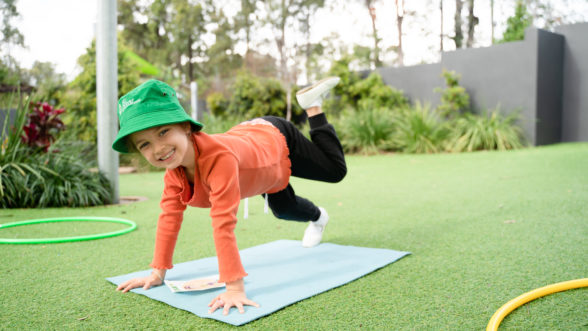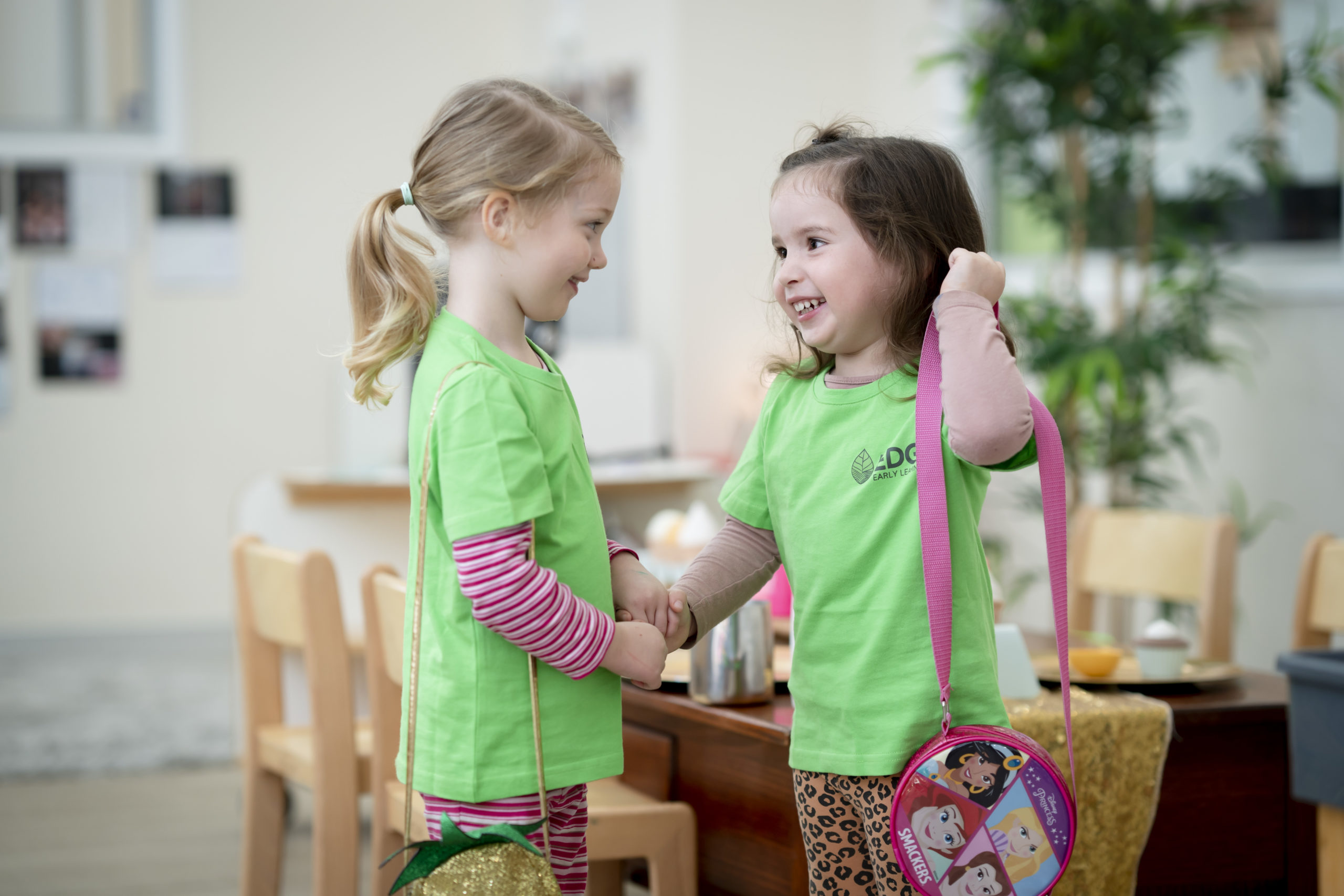
Wellbeing
Wellbeing
10 January, 2025

Friendships are some of the most underrated relationships a person will have in their lifetime. Being able to not only make but keep good friends is a rare skill that doesn’t necessarily come naturally – it needs to be honed over time.
When it comes to knowing how to make friends, it’s a case of the sooner, the better. Your child will forge important friendships during their early childhood years and, while it may not always go to plan, every friendship can teach them something important.
In their preschool years, the most common way of finding friends is through play. Playing together allows children to develop key skills that will serve them into adulthood – skills like sharing, listening to others, cooperating, communicating and taking turns. The playground is an important classroom, especially when it comes to forging friendships.
How children make friends throughout preschool will differ based on age and personality. Some children will take longer to warm up to people and find being around other people tiring, whilst others will thrive off the energy of meeting new people. It is important that both the early learning centre and families understand how their child prefers to communicate and spend time with friends. Then, they can encourage friendships in a supportive way that aligns with their preferred style of relationship building.
Making friends at 3 years old:
Typically, by three years old as children start preschool or at an early learning centre they will begin to regularly take in parallel play. This involves playing alongside other children, but not necessarily with them.
At three years old, children are still learning to understand others’ feelings, perspectives and emotions which can limit their ability to form strong friendships. Throughout this age, friendships are often formed based on convenience such as being near each other or sharing a toy.
Disputes over toys, sharing or taking turns are common at this young age as their emotional regulation is still developing. So, some conflicts may require the adult intervention of an educator or family member as they begin to learn basic social skills such as sharing, taking turns and saying ‘please’ and ‘thank you’.
Making friends at 4 years old
By four years of age children can understand the difference between friends and other children they are acquainted with. They can verbally name their friends as well as regularly request to organise playdates and spend time with them.
Children at this age will also begin to engage in associative play which involves interacting with others more directly, sharing ideas, toys and materials. This is because they are becoming more aware of their peers’ emotions and preferences helping them to form deeper social connections.
Four-year-olds will begin to bond over shared interests in pretend play such as animals, characters or ideas which can also lead to stronger friendships. They will begin to show early signs of empathy such as comforting another child who is upset.
In the face of conflict, children at this age are better at negotiating conflicts independently although may still require some guidance and instruction from adults.
Making friends at 5 years old:
At five years of age, children will engage in cooperative play which involves working together towards a common goal like building a structure, participating in organised activities or creating a game from scratch. Children at this age will enjoy games with rules which can provide opportunities for teamwork and deeper friendships.
They will start to express clear preferences for certain friends and may begin to form small groups or pairs based on shared interests or mutual liking rather than convenience. As a result of this, a sense of loyalty and inclusion will develop, and children will feel hurt if left out of a group.
To resolve conflict amongst friends, five-year-olds will resolve arguments or challenges independently as they can articulate their feelings effectively during disagreements.
Much like in adulthood, developing friendships in early childhood years can foster a sense of belonging and community. With close friends, your child will feel as though they fit in and have a support network beyond the home.
Friends will also teach your child how to navigate relationships beyond those with their immediate family, understanding boundaries and differences and respecting them.
Friendship can also provide a great source of stress relief. Child psychologists have even found that they can improve a child’s quality of life, and their ability to adjust to change in general.
Whether your child is struggling to make friends or not, you – as their parent – have an important role to play in their learning. Note that this role should be a supporting role, rather than a leading one. Your child will choose their own friends and will learn so much more in the process than if you steer them toward or away from certain friends.
You can help your child develop and practice key social skills like sharing and listening to others by working on these with them at home. This could mean role-playing, setting up playdates or praising good behaviour.
Be sure to model good behaviour when you are with your child, too. Ensure that they see you as a positive example of how to respect and communicate with others, including your friends and friends’ children.
Wondering exactly how to develop friendship skills? Try these three friendship activities for kindergarten and preschool-aged children:
As children navigate forming their first friendships this often results in a learning curve as they experience building friendships for the first time. There will be times when play between your child and a friend does not work out the way you anticipated. As a parent, it is important to assist your child in navigating this as they begin to develop their own social and emotional skills:
At Edge Early Learning, we take an inquiry-based approach to early learning. This style of dynamic learning poses questions or scenarios to your child, helping them to develop problem-solving and communication skills. By fostering these skills in your child’s early years, we are giving them the opportunity to develop stronger relationships with their peers and progress to other skills that will serve them throughout their life.